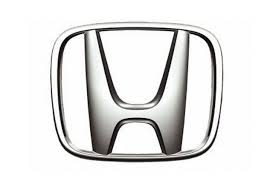S2000 L4-1997cc 2.0L DOHC (VTEC) MFI (2001)
_mfi/Page-1232001.png)
Brake Rotor/Disc: Testing and Inspection
Rear Disc Brake Rotor
Rear Brake Disc Inspection
Runout
1. Raise the rear of the vehicle, and make sure it is securely supported.
2. Remove the brake pads.
3. Inspect the disc surface for damage and cracks. Clean the disc thoroughly, and remove all rust.
4. Use wheel nuts and suitable flat washers (A) to hold the disc securely against the hub, then mount a dial indicator (B) as shown, and measure the
runout at 10 mm (0.4 inch) from the outer edge of the disc.
5. If the disc is beyond the service limit, refinish the brake disc. Do not use an engine-driven on-car brake lathe. Use only a motor-driven on-car
brake lathe.
Maximum Refinishing Limit: 10.0 mm (0.39 inch)
NOTE: A new disc should be refinished if its runout is greater than 0.10 mm (0.004 inch).
Thickness and Parallelism
1. Loosen the rear wheel nuts slightly, then raise the vehicle, and support it on safety stands. Remove the rear wheels.
2. Remove the brake pads.
3. Using a micrometer (A), measure disc thickness at eight points, approximately 45° apart and 10 mm (0.4 inch) in from the outer edge of the disc.
Replace the brake disc if the smallest measurement is less than the maximum refinishing limit.
Brake Disc Thickness:
Standard: 11.9 - 12.1 mm (0.469 - 0.476 inch)
Maximum Refinishing Limit: 10.0 mm (0.39 inch)
Brake Disc Parallelism: 0.015 mm (0.0006 inch) maximum
This is the maximum allowable difference between the thickness measurements.
4. If the disc is beyond the service limit for parallelism, refinish the brake disc. Do not use an engine-driven on-car brake lathe. Use only a
motor-driven on-car brake lathe.
NOTE: If the brake disc is beyond the service limit for refinishing, replace it.
